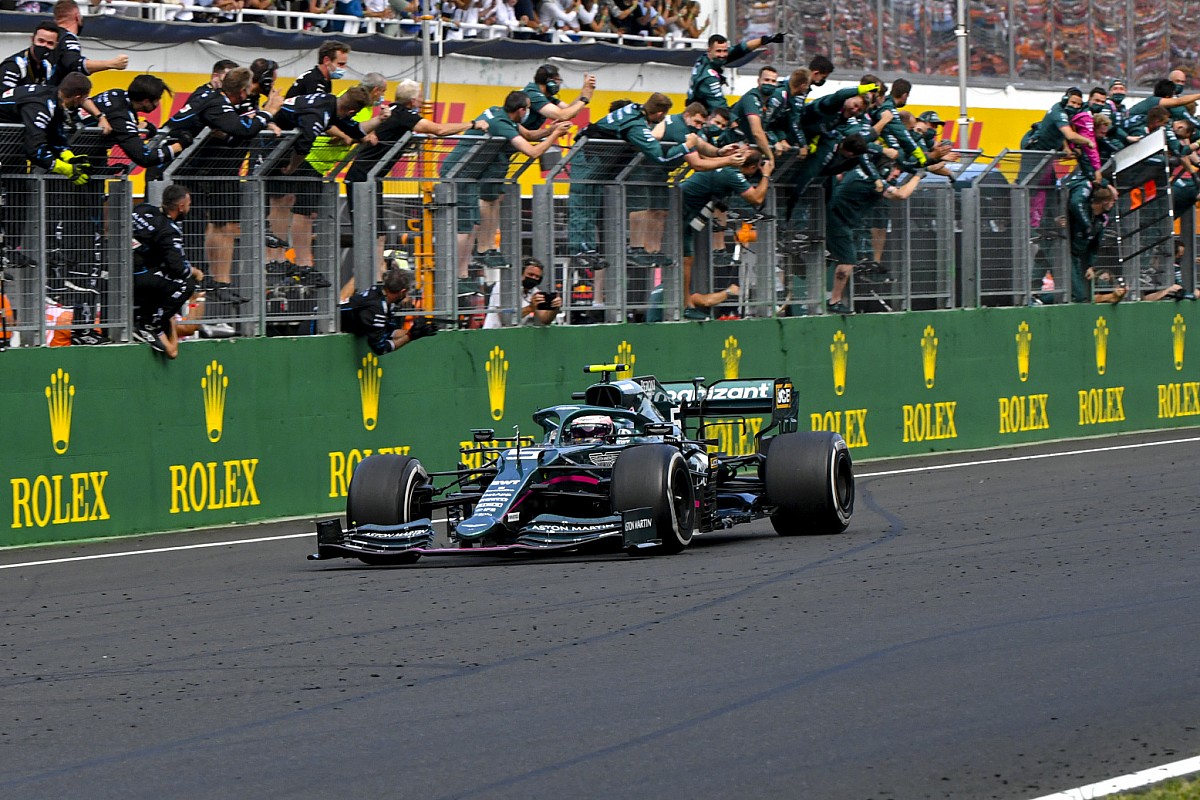
The Silverstone-based team had hoped to get the FIA commissioners to re-examine their case after Vettel’s car was banned from second place in Budapest for not having the mandatory 1 liter of fuel left for post-race checks .
Aston Martin initially believed that telemetry from the car showed that there was 1.44 liters more fuel in the car than the 0.3 liters the FIA was initially able to pump out.
It believed that a malfunction in the car’s fuel system had contributed to the circumstances and meant the fuel was not being pumped into the tank where the FIA could access it. The team has both filed a motion to review the law with the stewards and formally appealed the decision.
But at an FIA hearing on Monday, the FIA denied Aston Martin’s request to review the case, as the team’s latest evidence suggested that a mechanical problem might mean there wasn’t a liter of fuel left.
Also read:
In order for the request for review to be accepted, Aston Martin had to provide a “significant” and “relevant” new item that was discovered after the event and was not available to the entrant at the time of the decision.
At the hearing, the team submitted an analysis of more than 100 channels of fuel system-related data to show that Vettel’s car had a fuel system failure.
This failure in fuel cell pressure caused the air pump in the fuel cell to activate maximum power, which by pumping air through the fuel cell meant that a significant amount of fuel was being discharged from the car. This error meant that only 0.3 liters of fuel could then be withdrawn.
The FIA accepted that this evidence, indicating a malfunction in the fuel cell pressure relief value, was a novel element.
However, upon further investigation by Aston Martin, it emerged that the team believed that at the end of the race there was in fact less than a liter of fuel left in the car due to the problem with the fuel system. Therefore, the FIA felt that the new evidence was not relevant to the case.
The main original stewards’ decision was based on not having the mandatory 1 liter of fuel left, rather than delving into the reasons, which exactly the latest Aston Martin evidence supports.
In an FIA statement it says: “For the assessment of whether the one-liter requirement has been exceeded or not, it makes no difference why it was less than one liter.
“There may be several explanations as to why the remaining balance is not enough at the end of a race. In any case, it is the sole responsibility of the competitor to ensure that the vehicle complies with the regulations at all times (Art. 3.2 International Sports Code of the FIA) and there can be no objection that no performance advantage has been achieved (Art. 1.3.3 of the International Sports Code of the FIA ).
“To be able to affirm a ‘relevant’ fact, Aston Martin should have presented facts that actually more than a liter of fuel was left. The reason why this requirement could not be met is not relevant for the decision as to whether there is a rule violation. “
The FIA also did not accept any advice from Aston Martin on teams that were complying with the purpose of the regulations but not the strict wording of exemptions for broken or lost parts in races.
For these reasons, the FIA denied Aston Martin’s request for a review.
After the decision, Aston’s CEO & Team Principal Otmar Szafnauer said: “Sebastian drove brilliantly in Hungary and we are delighted that we have been given the opportunity to show important new evidence that we have discovered since the race.
“We believed the evidence we presented was relevant and showed the FIA that he should have been reinstated after his disqualification.
Unfortunately, the FIA took a different view and although the accuracy of our new evidence was not disputed, Sebastian’s disqualification was confirmed on the grounds that the new evidence was not considered ‘relevant’. This is disappointing and we will now review our position for the full appeal process. “
The post Aston Martin fails the F1 review of Vettel’s GP DQ of Hungary first appeared on monter-une-startup.





